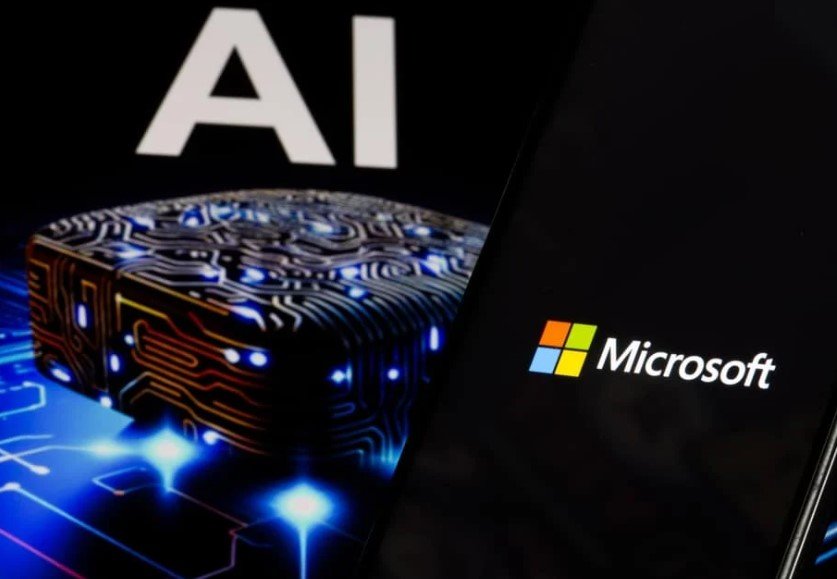Microsoft shook up the developer scene on May 19 with a bold vision for an “open agentic web” — a future where AI agents don’t just assist but act autonomously across software and business. CEO Satya Nadella unveiled a series of new AI tools, including an evolved GitHub Copilot that goes beyond suggestions to independently tackle coding tasks. The announcements promise to reshape how software is built, with AI at the core of development, discovery, and decision-making.
Microsoft’s vision at Build 2025 wasn’t subtle. Nadella emphasized a shift from AI as just a helper, to AI as an agent that can take initiative, solve problems, and streamline workflows. It’s about making machines that do more than respond — they think, decide, and act. This bold step may well redefine the future of coding and beyond.
GitHub Copilot: From Sidekick to Solo Developer?
The biggest headliner was definitely the new GitHub Copilot upgrade, which now acts as a full coding agent inside GitHub. Imagine this: instead of just suggesting lines of code or functions while you type, Copilot can now be “assigned” full tasks — bug fixes, feature additions, maintenance work — and it’ll handle them on its own.
That means developers can offload repetitive or time-consuming chores and focus on complex, creative coding. Copilot creates a safe development sandbox using GitHub Actions, clones the project repo, and analyses the entire codebase. Then it makes changes through draft pull requests and keeps a detailed session log for transparency.
This autonomous coding agent isn’t just fancy tech. It could actually speed up development cycles and improve code quality by reducing human error or missed bugs. It’s like having a reliable junior dev who never sleeps and is always ready to grind through the tedious parts.

The rise of AI-powered coding agents poses questions too, of course. Will developers feel comfortable delegating so much? What about accountability? But so far, early testers report the experience feels like having a proactive collaborator rather than a robotic assistant.
A New Chapter for the Agentic Web
Microsoft is framing this “agentic web” as an open ecosystem where AI agents from different platforms communicate and coordinate. This isn’t about closed systems or proprietary silos — instead, it’s about shared infrastructure, protocols, and open standards. Microsoft is working on NLWeb (Natural Language Web), which aims to let AI agents interact naturally with human commands across apps and services.
Picture this: your AI agent can handle not only code but also scientific discovery, data analysis, and even complex team collaboration tasks. Microsoft’s updates promise a future where AI-driven workflows spread across organizations — making processes smoother, decisions smarter, and outcomes faster.
The AI-powered Copilot agent is just one piece of this puzzle. The company also announced improvements in security, developer tools, and protocols to accelerate scientific research using AI.
How This Could Change Software Development Forever
Software development has always been a mix of creative problem solving and tedious grunt work. Microsoft is betting that the latter can be automated by AI agents, freeing developers to focus on innovation. The promise is alluring: faster releases, fewer bugs, and better software quality.
But the tech also comes with its quirks and challenges. For instance, Microsoft limits the new Copilot agent’s access to ensure security, and all changes it makes are logged and transparent. That’s vital to avoid accidental bugs or vulnerabilities.
Plus, developers will need to adjust to a new kind of collaboration — with AI that acts more like a colleague than a tool. That might take some getting used to.
Here’s a snapshot of what the new Copilot agent can do:
-
Accept assigned issues automatically and start working without manual coding input.
-
Operate inside a secure sandbox environment.
-
Analyze entire codebases and submit draft pull requests.
-
Provide detailed logs of all activities for accountability.
Will developers fully embrace this change? Time will tell, but Microsoft’s vision clearly pushes AI deeper into the fabric of software development.
A Peek Into the Future of AI Collaboration
Nadella’s vision goes beyond developers. It hints at a future where AI agents assist across entire companies — from coding to data science to daily decision-making. The open agentic web concept suggests a world where AI tools work together, regardless of vendor, through shared protocols.
It’s an ambitious dream and quite a pivot from the era of siloed apps and manual processes. If Microsoft’s roadmap plays out, we might soon see AI agents that coordinate projects, solve complex problems across teams, and drive innovation at lightning speed.
This vision raises big questions about trust, privacy, and control, but Microsoft is already focusing on security and transparency in these new tools. Still, human judgment will remain essential. AI agents might take the wheel on routine tasks, but the driver will always be human.
One thing’s for sure: Build 2025 gave us a glimpse of a future where AI acts more like a teammate than a tool. Whether that future is near or far, it’s coming fast.
